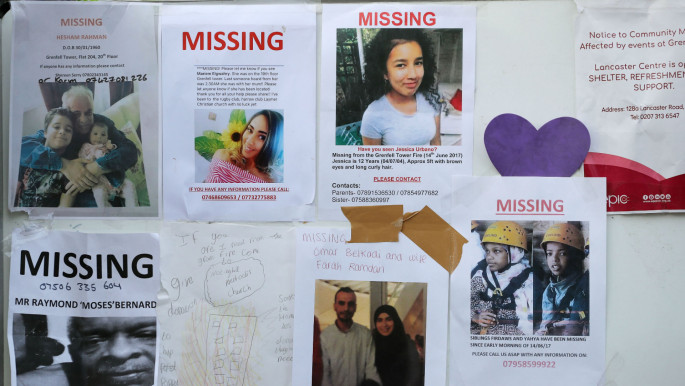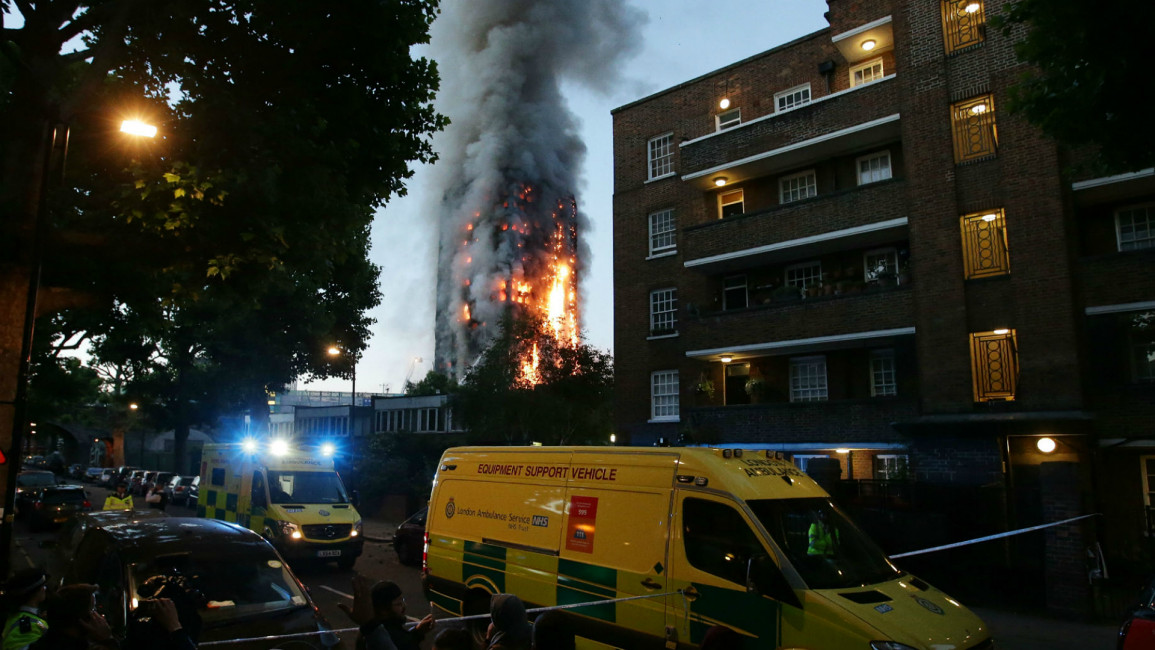London fire: '30 killed' in Grenfell Tower blaze, but death toll could rise above 100
At least 65 people are feared dead or missing in a London tower block fire as anger mounts and questions grow over how the fire spread so quickly.
Police on Friday said the official death toll had risen to at least 30 people, with flames from the fire finally extinguished after burning for two days. However, many believe the death toll is much higher. Twenty-four people remain in hospital, 12 of them in critical care.
"We know that at least 30 people have died as a result of this fire... I do believe the number will increase," police commander Stuart Cundy told reporters in front of the charred Grenfell Tower.
The Sun newspaper on Friday listed 65 people who it said were thought dead or still missing, raising latent fears that the death toll could exceed 100.
It was not known whether some of those were among the bodies recovered so far.
"I'd like to hope that it isn't going to be triple figures," Cundy told Reuters.
Anger is growing in the local community as traumatised families await news of their loved ones.
Twitter Post
|
Many allege that fears repeatedly raised about fire safety standards were brushed aside by local authorities.
"How many children died? What are you going to do about it?" a young boy asked the Mayor of London, Sadiq Khan, as he walked through the west London neighbourhood.
"You can see the anger for the community, justifiably so," Khan said.
More than 2,700 people are said to be attending a Westminster rally on Friday night to demand "justice" - raising fears that tensions could boil over.
Grenfell Tower is part of a social housing estate in north Kensington, just streets away from some of the most expensive homes in the world in Notting Hill.
Residents have said their safety concerns were ignored, arguing their fears would have been addressed before the tragedy had they lived in a more upmarket area of London.
"If this happened somewhere near Knightsbridge this would have been resolved. It wouldn't have been an issue," said Nana Akuffo, 46, a chef volunteering at a local community centre.
David Collins, former chairman of the Grenfell Tower Residents' Association, said the building's management had failed to listen to residents' calls for improvements on fire safety.
"This is a multi-ethnic, multicultural, diverse community that just didn't get served by the people representing them," Collins told AFP.
Last November, local residents warned of "dangerous living conditions" in the tower block and lambasted the Kensington and Chelsea Tenant Management Organisation (KCTMO) responsible for the building.
 |
|
The local action group said: "It is a truly terrifying thought but the Grenfell Action Group firmly believe that only a catastrophic event will expose the ineptitude and incompetence of our landlord, the KCTMO."
The focus of criticism centres on the cladding fitted to external walls on the 1970s concrete block as part of a £8.7 million ($11 million, 9.9 million euros) refit completed last year.
In addition to debate over the cladding, questions have also been raised over why there was no sprinkler system in the Grenfell Tower which could have helped stop the fire spreading, or any central smoke alarm system that would have woken sleeping residents.
Official fire service advice for residents to stay in their homes and use towels to block out smoke, while awaiting help, has also come under scrutiny.
Rydon, the firm responsible for the refit, said the project "met all required building regulations".



![A pro-Palestinian encampment at Columbia persists, despite recent arrests. [Brooke Anderson/The New Arab]](/sites/default/files/styles/image_330x185/public/2024-04/417084c8-3251-4705-8422-058fca1d5709.jpg?h=ddb1ad0c&itok=T2cXVfXy)